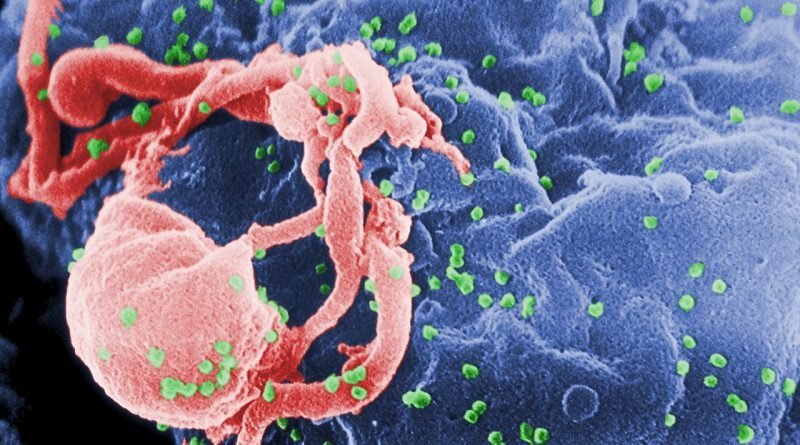
A nine year old girl from South Africa born with HIV for more than eight years, lives with no symptoms of the disease after discontinuation of anti-HIV drugs. This case is direct evidence that early treatment can cause long-term remission. This, in turn, gives doctors hope to end the terrible epidemic, which has lasted for ten years.
The case of the African girls was discussed on Monday at a Conference on AIDS in Paris, where doctors have also presented encouraging results of studies on the action of injections that can be done once a month or two for the treatment of HIV instead of a daily pill-taking.

Modern treatment
Currently, in order to keep HIV under control and have your whole life to take pills. Fully managed to cure only one person — the so-called «Berlin patient«, who in 2007 underwent a bone marrow transplant from a donor with natural resistance to HIV. But such operations are extremely risky. In addition, they will not help to cure the millions of people who suffer from HIV/AIDS.Therefore, some researchers seek to obtain long-term remission, when the immune system can control HIV without the help of drugs.
Aggressive treatment that begins soon after infection, could allow to achieve the desired result. The girl from Africa is the third child, who, after this approach was achieved a long remission.
Prospective studies
The girl participated in the study organized by the head of the National Institute of Allergy and infectious diseases, Anthony Fauci. The child was prescribed powerful drugs when she was 2 months. After 40 weeks the treatment was stopped. After tests, after 8 years and 5 months, the virus was detected in a small number of cells of the immune system, but he could not reproduce. The girl has no gene mutation that provides natural resistance to HIV infection, so the remission is likely to result in early treatment.
Currently undergoing a study designed to test whether treatment of HIV-infected infants during the first two days after birth to control the virus after cessation of medication. Experiments began in 2014 in South America, Haiti, Africa, and the United States, and some of the earliest participants can try to stop treatment at the end of this year.
Despite the fall in the rate of HIV transmission from mother to child, each year worldwide , about 150,000 children are still born HIV-positive. Therefore, the results of a South African girl are promising and long-awaited phenomenon.
Injections instead of pills
In addition, the treatment may become easier, if successful will be the results of two large ongoing studies which analyze the combination of two long-acting drugs — rilpivirine and capoterapia. Almost two years after the start of the test in 94% of subjects receiving injections every eight weeks, 87% receiving injections every four weeks and 84% of people on a daily tablets recorded suppression of the virus.
If clinical trials are completed as the researchers hope, the results will have a huge impact on the lives of large groups of people who are unable to take medicines every day, for example, suffering from mental health problems or problematic drug use.